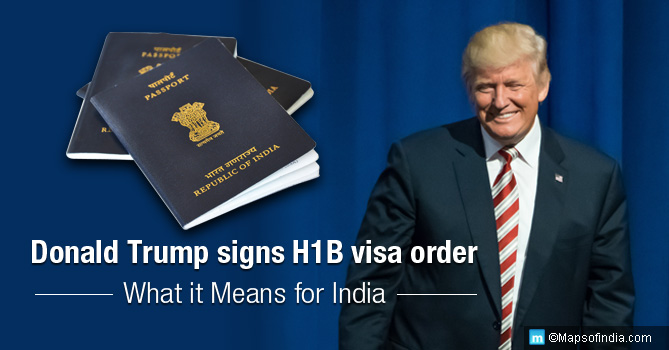The Indian IT industry has more to worry about aside from the proposal of overhauling the H1B visas. The United States Congress has now introduced two more legislations over the last two weeks, which are bound to have adverse effects on India’s IT industry prospects.
End Outsourcing Act
Three Senate democrats, Joe Donnelly along with Senator Sherrod Brown and Senator Kirsten Gillibrand, on January 30, 2017, introduced the “End Outsourcing Act” in the view of supporting American workers by ending outsourcing.
“Companies that outsource jobs shouldn’t be subsidized by U.S. taxpayers and allowed to do business with the U.S. government,” said Brown in his official website. “We should encourage businesses to invest here and make sure tax-payer funded contracts are awarded to companies that employ American workers.”
The legislation plans to take the following steps:
- Federal contracts, funded by taxpayers, should go to companies that employ American workers.
- Federal policies to encourage businesses to invest in American communities.
- Incentives to be cut back and prohibit companies from receiving tax deductions in case they are outsourcing.
- Companies shipping jobs to foreign countries will be required to forfeit tax breaks and incentives.
- Tax incentives will be awarded to companies that relocate foreign jobs to rural and impoverished communities in United States.
American Labour unions including the American Federation of Labour and Congress of Industrial Organizations (AFL–CIO), Communications Workers of America (CWA), United Automobile Workers (UAW) and United Steelworkers (USW) have extended their full support to the legislation. Senator Brown of Ohio has been working towards encouraging production in the United States and worked to crack down on companies who shift production overseas. In fact earlier this month, Brown introduced legislation making it compulsory for all taxpayer-funded infrastructure projects to use American-made iron and steel.
Grassley, Durbin to Introduce Reforms to Skilled Non-Immigrant Visa Programs
Apart from the End Outsourcing Act, Senators Chuck Grassley and Dick Durbin have re-introduced the 2007 Bill which aims at revamping the work-visa programme of the US. The legislation will prioritise American workers and restore fairness in visa programmes for skilled foreign workers, by restoring the original intent of the Congress in the H1B and L1 visa programmes which was to increase enforcement, modify wage requirements and secure protections for both American workers and visa holders.
Announcing their intent on their official website, Grassley said, “Congress created these programs to complement America’s high-skilled workforce, not replace it. Unfortunately, some companies are trying to exploit the programs by cutting American workers for cheaper labour. We need programs dedicated to putting American workers first. When skilled foreign workers are needed to meet the demands of our labour market, we must also ensure that visa applicants who honed their skills at American colleges and universities are a priority over the importation of more foreign workers. Our bill takes these steps to ensure that the programs work for Americans and skilled foreign workers alike,” Grassley said.
The bill was reintroduced on January 20, 2017, and aims at giving preference to talented foreign students who completed their education in the US for H1B visas.
The ministry of external affairs, India, is at present downplaying the impact of the three private Bills introduced in the US House of Representatives. According to MEA spokesperson Vikas Swarup, no executive order has been signed so far and the bills have to go through many levels of scrutiny and full Congressional process before being accepted and converted into a law.
He further added that India is in constant dialogue with senior levels of the Trump Administration and US Congress over the issue of the new proposed legislations. Swarup said, “They are fully aware of our position in this particular matter i.e., Indian software exports and Indian software technical professionals add to the competitiveness of the US industry.”
A delegation from the tech industry body Nasscom is leaving for the US in the last week of February to discuss the issue with US policy makers.
There are causes for concern for the IT Industry of India. Trump in his inaugural speech had made no reservations about the fact that any new law to be passed in the US would be done keeping only the interest of American citizens in mind. If these laws alter the level-playing field, then India does hold a disadvantageous position.






